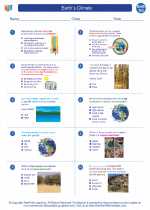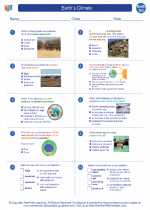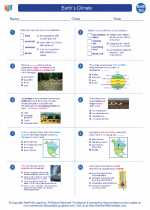Communities in Ecology
Communities in ecology refer to the assemblage of populations of different species that occur in the same place at the same time and interact with each other. These interactions can be direct, such as predation or competition, or indirect, such as through the modification of the physical environment.
Key Concepts
- Species Interactions: The relationships between different species within a community, including competition, predation, mutualism, and parasitism.
- Community Structure: The organization of species within a community, including species diversity, abundance, and distribution patterns.
- Succession: The process of change in the species structure of an ecological community over time.
- Ecological Niche: The role and position a species has in its environment, including how it meets its needs for food and shelter, how it survives, and how it reproduces.
Study Guide
When studying communities in ecology, it's important to understand the following concepts:
- Species Interactions: Be able to differentiate between different types of species interactions and provide examples of each.
- Community Structure: Understand how species diversity and abundance contribute to the overall structure of a community, and be able to interpret and analyze community diversity indices.
- Succession: Describe the process of primary and secondary succession, including the role of pioneer species and climax communities.
- Ecological Niche: Explain the concept of a niche and how it relates to the overall organization of a community, and provide examples of niche differentiation among coexisting species.
Additionally, it's important to understand the factors that influence community dynamics, including abiotic factors such as climate and soil type, as well as biotic factors such as predation and competition.
Be prepared to analyze and interpret community data, such as species abundance and distribution patterns, and be able to make predictions about how changes in the community structure may impact species interactions and ecosystem functions.
Finally, be ready to discuss the conservation and management of ecological communities, including the importance of preserving biodiversity and mitigating the impacts of human activities on natural communities.
.◂Earth Science Worksheets and Study Guides High School. Earth`s Climate

 Worksheet/Answer key
Worksheet/Answer key
 Worksheet/Answer key
Worksheet/Answer key
 Vocabulary/Answer key
Vocabulary/Answer key
 Vocabulary/Answer key
Vocabulary/Answer key
 Vocabulary/Answer key
Vocabulary/Answer key
